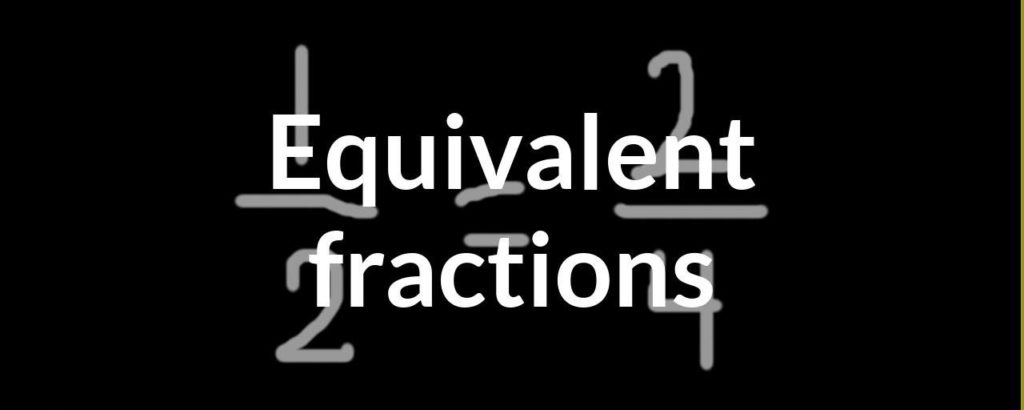Back to: MATHEMATICS JSS1
Welcome to class!
In today’s class, we will be talking more about fractions. Enjoy the class!
Fractions

Equivalent fractions
Summary: Equivalent fractions are different fractions that name the same number. The numerator and the denominator of a fraction must be multiplied by the same nonzero whole number to have equivalent fractions.
Definition: Equivalent fractions are different fractions that name the same number.
Example 1
The fraction in example 1 represents the same number. These are equivalent fractions.
| Two-thirds is equivalent to four-sixths i.e. |
Example 2
| The fractions three-fourths |
Procedure: To find equivalent fractions (multiply the numerator AND denominator by the same nonzero whole number).
You can multiply the numerator and the denominator of a fraction by any nonzero whole number, as long as you multiply both by the same whole number! For example, you can multiply the numerator and the denominator by 3. But you cannot multiply the numerator by 3 and the denominator by 5. You can multiply the numerator and the denominator by 4. But you cannot multiply the numerator by 4 and the denominator by 2.
The numerator and the denominator of a fraction must be multiplied by the same nonzero whole number to have equivalent fractions. You may be wondering why this is so.
In the last lesson, we learned that a fraction that has the same numerator and denominator is equal to one. This is shown below.
2/2 = 1 (Two-halves)
3/3 = 1 (Three-thirds)
4/4 = 1 (Four-fourths)
5/5 = 1 (Five-fifths)
6/6 = 1 (Six-sixths)
So, multiplying a fraction by one does not change its value. Multiplying the numerator and the denominator of a fraction by the same nonzero whole number will change that fraction into an equivalent fraction, but it will not change its value. Equivalent fractions may look different, but they have the same value.
In our next class, we will be talking more about Fractions. We hope you enjoyed the class.
Should you have any further question, feel free to ask in the comment section below and trust us to respond as soon as possible.

I don’t understand